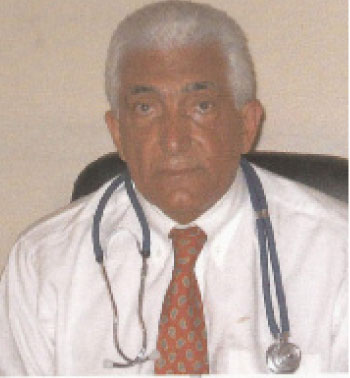
What is Epilepsy?
Epilepsy is a brain disorder in which clusters of nerve cells, or neurons, in the brain sometimes signal abnormally. Neurons normally generate electrochemical impulses that act on other neurons, glands, and muscles to produce human thoughts, feelings, and actions. In epilepsy, the normal pattern of neuronal activity becomes disturbed, causing strange sensations, emotions, and behavior, or sometimes convulsions, muscle spasms, and loss of consciousness. During a seizure, neurons may fire as many as 500 times a second, much faster than normal. In some people, this happens only occasionally; for others, it may happen up to hundreds of times a day.
More than 2 million people in the United States - about 1 in 100 - have experienced an unprovoked seizure or been diagnosed with epilepsy. For about 80 percent of those diagnosed with epilepsy, seizures can be controlled with modern medicines and surgical techniques.
However, about 25 to 30 percent of people with epilepsy will continue to experience seizures even with the best available treatment. Doctors call this situation intractable epilepsy. Having a seizure does not necessarily mean that a person has epilepsy. Only when a person has had two or more seizures is he or she considered to have epilepsy.
Epilepsy is not contagious and is not caused by mental illness or mental retardation. Some people with mental retardation may experience seizures, but seizures do not necessarily mean the person has or will develop mental impairment. Many people with epilepsy have normal or above-average intelligence. Famous people who are known or rumored to have had epilepsy include the Russian writer Dostoevsky, the philosopher Socrates, the military general Napoleon, and the inventor of dynamite, Alfred Nobel, who established the Nobel Prize. Several Olympic medal lists and other athletes also have had epilepsy. Seizures sometimes do cause brain damage, particularly if they are severe. However, most seizures do not seem to have a detrimental effect on the brain. Any changes that do occur are usually subtle, and it is often unclear whether these changes are caused by the seizures themselves or by the underlying problem that caused the seizures.
What causes Epilepsy?
Anything that disturbs the normal pattern of activity in the brain can trigger epilepsy. The cause can be illness, brain damage, or abnormal development of the brain. No cause can be determined for about three-quarters of the cases of epilepsy.
Because epilepsy has so many causes and can be linked to a number of other conditions, it is sometimes very difficult to determine the cause of a particular case. They include: Brain chemistry, hereditary causes, other disorders, head injury, prenatal injuries
Seizure (a sudden violent attract) symptoms
Seizures occur because the brain becomes irritated and an “electrical storm” occurs. This “electrical storm” occurs because the normal connections between the cells in the brain do not function properly. This causes the brain to try to shut down because of the electrical surge. The muscle shaking occurs because the brain is ending out signals to every muscle group, asking them to contract. Most seizures are self-limiting and are followed by a so-called poetical period, in which the brain can be considered to “reboot and restart” all its programs, similar to a computer when it is rebooted.
Seizures are a common event, and 4% of people will experience one in their lifetime. The potential to have a seizure depends upon the threshold of the brain to withstand excess electrical activity. A blow to the head can cause an electrical spike causing a seizure, and sometimes seizures just happen.
Steps to take if you witness an individual having a seizure include:
-The first step is to take a deep breath and try to stay calm.
-Make certain that there is nothing nearby that can be struck by the person having the seizure.
-Don’t hold the person down. A seizure is a violent and forceful event, and bystander injury is a possibility.
Does everyone who has a seizure have Epilepsy?
A seizure is a symptom of epilepsy, but not all seizures are caused by epilepsy.
A seizure not related to epilepsy can be caused by a reaction to:
A drug, A high fever, A severe head injury
Other disorders are diabetes, some heart conditions, and narcolepsy, among others.
Sometimes people have a single seizure for which no cause can ever be found.
Several conditions or behaviors mimic epilepsy but are not epilepsy.
Epilepsy is not a fainting disorder
Epilepsy cannot be caused by holding the breath. Some children act out by holding their breath until they faint. This is not epilepsy.
Epilepsy is not momentary confusion, forgetfulness, or a lack of concentration.
Epilepsy is not catatonia, a specific type of schizophrenia characterized by stupor and bizarre movements.
Epilepsy is not contagious. A tendency toward epilepsy may be inherited, but it cannot be caught like a cold from another person.
Important to Know:
Is epilepsy a mental illness?
Epilepsy is not a form of mental illness and it does not cause mental illness.
Is epilepsy a sign of reduced intelligence?
Epilepsy is not an indicator of intelligence. Epilepsy affects people of average intelligence as well as those above and below average.
What brings on an Epileptic seizure?
Seizures can be sparked by a variety of stimuli, including:
Lights that flash at a certain speed
The flicker of a television screen or TV monitor. A sudden loud noise or repetitive sounds,
alcohol consumption, cigarette smoking, stress, headache, menstruation, lack of sleep, having a bad day. Some people with epilepsy have seizures only during their sleep. Sexual activity does not trigger seizures. But seizures can also occur seemingly for no reason at all.
Important to know
Can Epilepsy be life-threatening?
Epilepsy can be dangerous, particularly if a condition called status epileptics occurs. This is a serious situation in which a person has prolonged seizures or does not fully regain consciousness between seizures.
Some doctors define status epileptics as a seizure that lasts for more than five minutes. More conservative doctors define the condition as a seizure lasting 10 or even 30 minutes. Without emergency attention, this condition can cause permanent brain damage or be fatal.
Hence the importance of taking the medication prescribed.
·About a third of status epileptics events are triggered when a person stops taking antiepileptic medication.
·Status epileptics can be triggered by sudden withdrawal of certain antiepileptic drugs.
·About a third of the time, it is the first sign of a seizure disorder. It can also follow stroke, poisoning, high fever, or low blood sugar in people with diabetes.
Status epileptics affect over 100,000 people in the United States each year and cause about 50,000 deaths.
Hereditary causes
Many types of epilepsy tend to run in families, and some have been traced to an abnormality in a specific gene. These genetic abnormalities can cause subtle changes in the way the body processes calcium, potassium, sodium, and other body chemicals.
Other Disorders
Epilepsy can be triggered by brain damage caused by other disorders.
Brain tumours, alcoholism, and Alzheimer’s disease can cause epilepsy because they alter the normal workings of the brain.
Stroke, heart attacks, and other conditions that affect the blood supply to the brain (diseases) can cause epilepsy by depriving the brain of oxygen. About a third of all new cases of epilepsy develop in older people.
Infectious diseases such as meningitis, viral encephalitis, and AIDS, can cause epilepsy.
Cerebral palsy, autism, and a number of other developmental and metabolic disorders can cause epilepsy.
Head injury
Head injuries can cause seizures. If the head injury is severe, the seizures may not begin until years later. If the injury is mild, the risk is slight.
For further information, visit Government hospital and clinics, NGOs and private clinics. You can also call on Dr Azadeh’s live Health Show on Afri-radio every Wednesday’s from 9 to 9:30 am, or send email to azadehhassan@yahoo.co.uk, or text to 002207774489/ 3774469.




